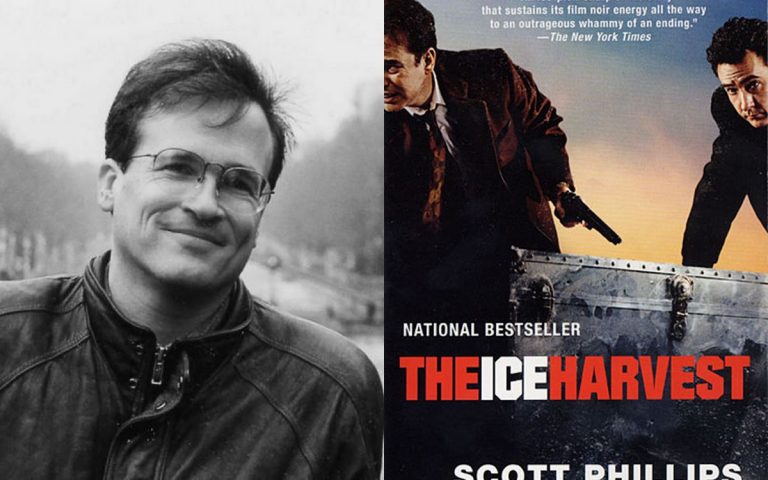Scott Phillips is the award-winning author of seven novels. His novel, The Ice Harvest, was adapted to the screen and deemed a New York Times Notable Book of the Year. Its big-screen adaptation was directed by Harold Ramis and starred John Cusack and Billy Bob Thorton.
Let’s talk The Ice Harvest for a moment. Will we see any of those characters again in the future?
Not in the near future. I’d like to do something with Charlie’s grown children, but I’m not sure what exactly. Some of the characters from ”The Walkaway” are tangentially connected to those characters—one of them is married to Sidney, the bartender—and I’d like to revisit some of them.
Any awesome stories to share about hanging with the cast and crew of The Ice Harvest?
There’s not much that I haven’t told already. They treated me very well, and I had fun watching them shoot it. I believe they let me hang around the set because the first time I showed up I kept my mouth shut and left before they asked me to. After that they let me come back whenever. The only member of the cast that I got to know well was Connie Nielsen, because she and Harold and I spent some time promoting the movie in Europe.
Your newest novel Rake—how much of it is autobiographical?
Autobiographical is probably the wrong word. The desperate, pathetic screenwriter who can’t get laid to save his life is autobiographical. The main character is based largely on an actor friend of mine, who was hugely popular in France around 1990, and slightly on another actor friend who was his co-star. We were trying, based on their sudden fame, to get a movie made, and some pretty strange and appalling things happened involving some strange and appalling people, including an arms merchant, whom I made only slightly worse in the novel (he never, for example, tried to kill any of us, or vice-versa). When I wrote the book, I took some of those stories and exaggerated them and added some violence, and there you go. For the record, there’s only one incident of violence in the book that really happened, only it happened to me and not my actor friend.
What brought you to Paris and Southern California? Would you suggest other writers take the plunge of moving to cities like these for literary inspiration and experience?
I went to France for reasons completely unrelated to writing. I worked there in the summers as a tour guide/chaperone/French instructor, and one year I just didn’t go home. I did write my first, unpublishable novel there. I went to LA after the incidents described in “Rake” with the idea of becoming a screenwriter, which I did for a while with limited success before turning back to fiction. As far as moving, you shouldn’t count on a place to make you a writer, but sometimes a change of scenery works. Go someplace cheaper than Paris or LA.
What projects are you currently working on?
Finishing a novel about art forgery set in contemporary Southern California, starting a novel set in Paris in 1980. Editing an anthology, “St. Louis Noir,” for Akashic books.
What books are you reading at the moment? What beer pairs best with these books?
“La Petite Bijou,” by Patrick Modiano, who just won the Nobel. This is the second of his that I’ve read. He reminds me of Simenon for a number of reasons, I’d love to translate him. Only one or two of his books are available in English. I just started “At the End of the Road,” by Grant Jerkins, and I’m in the middle of “Earth Abides,” by George R. Stewart, which was my grandfather’s favorite novel.
Who is this Jedidiah Ayres guy I keep hearing about? I hear he is your partner in crime.
Jed is my screenwriting partner, as well as the author of three book-length works of fiction with filthy titles. He’s an exceptionally talented screenwriter; I doubt I’d be doing anything in the form if I weren’t working with him.
Any advice for novelists trying to write books for a living?
Doing it for a living is almost impossible, but you can make money doing related things. My main advice is to get an MFA and go teach somewhere. Or learn the book business and be an editor. Jason Pinter and David Ebershoff are two good examples of writers who also edit.
If you were a career criminal instead of a writer, what would your profession be?
Someone else just asked me this question and I wasn’t able to answer it. I’m not really qualified to do anything except write, edit and translate. As a criminal, I’d be sadly unemployable.
How does your writing process go? Pots of black coffee and a typewriter?
Procrastination and desperation.
Some of the coverage you find on Cultured Vultures contains affiliate links, which provide us with small commissions based on purchases made from visiting our site.

